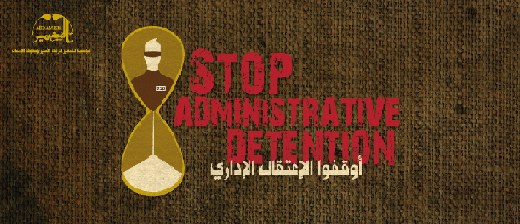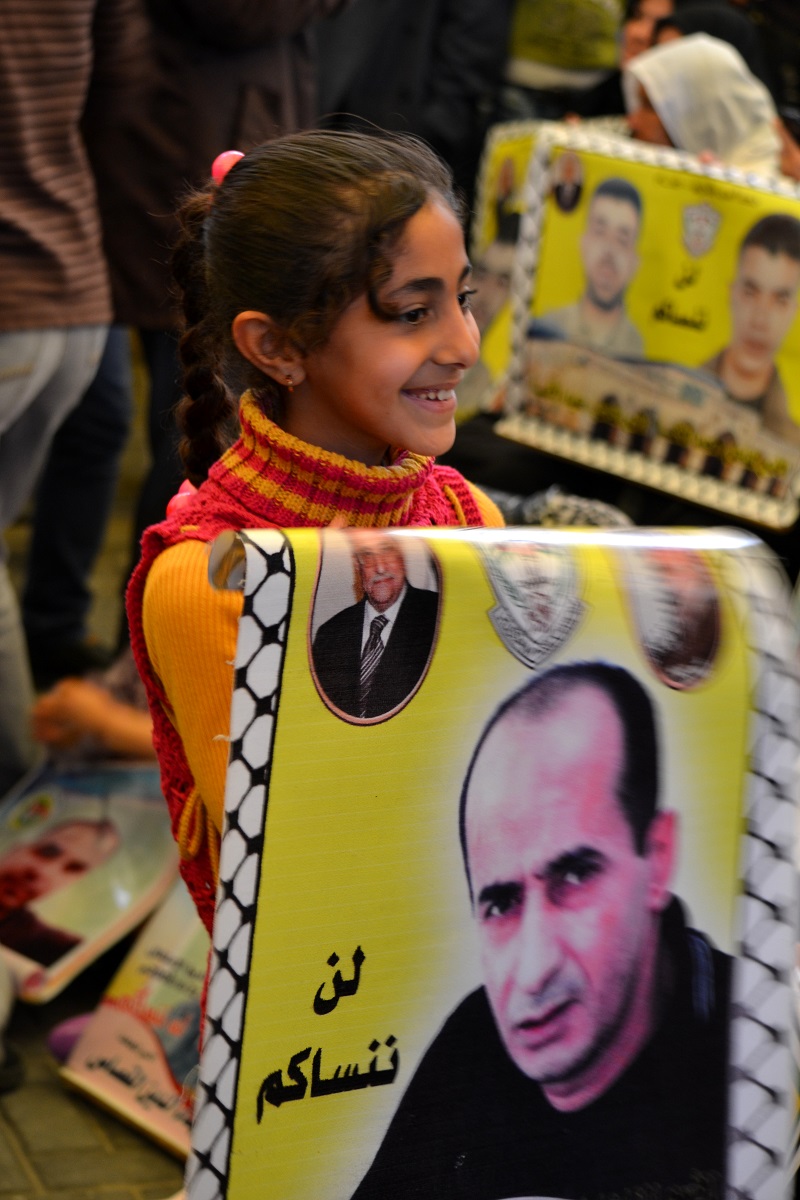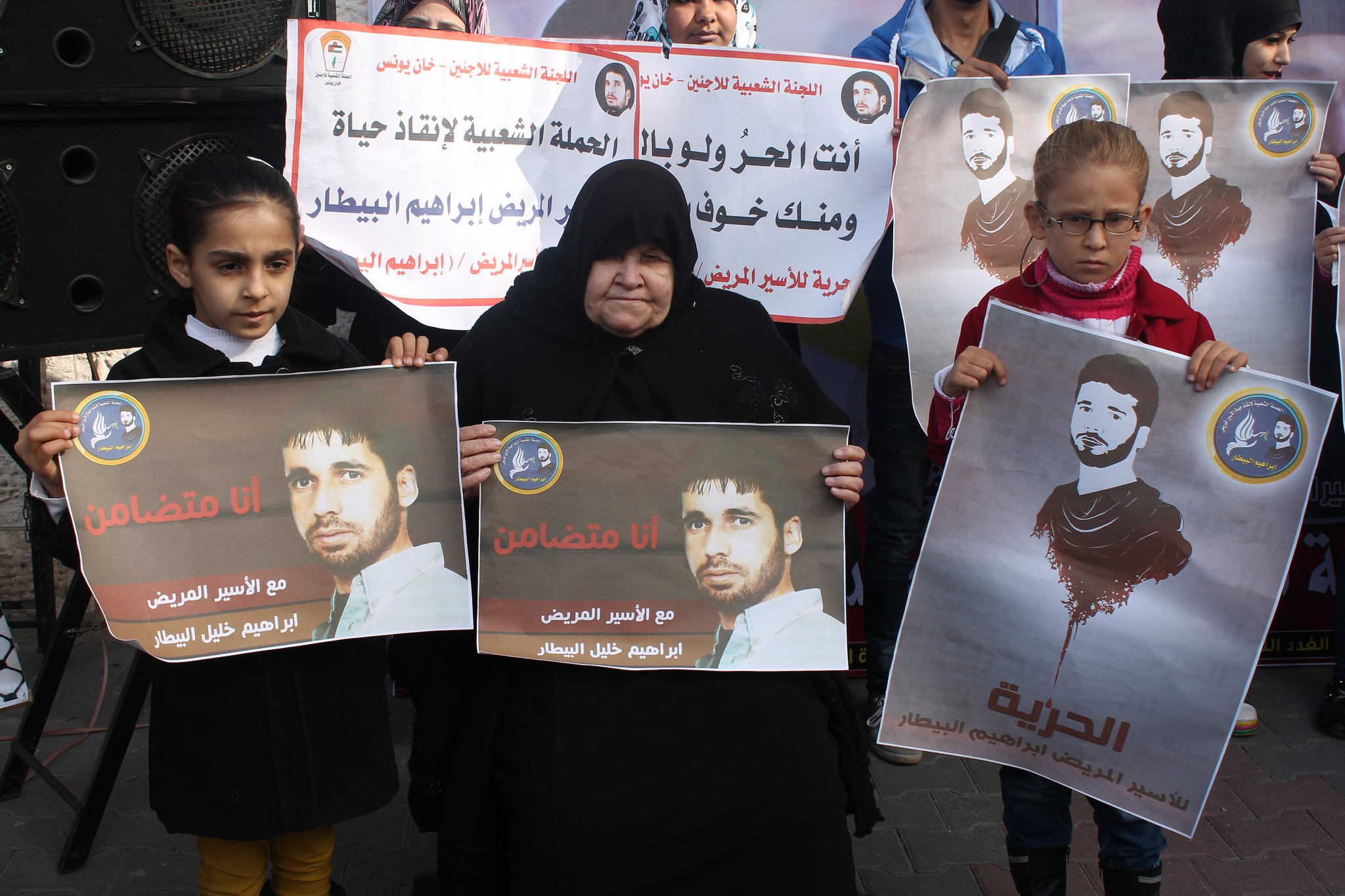Tag: Hunger strike
-
Mass Hunger-Strike Launched by Palestinian ‘Administrative Detainees’
24th April 2014 | Addameer Prisoner Support and Human Rights Association | Ramallah, Occupied Palestine Addameer Prisoner Support and Human Rights Association can confirm the launch of a mass open-ended hunger strike involving over 100 Palestinian political detainees. All those involved are being held under administrative detention, which is a procedure whereby detainees are held without charge…
-
PHOTOS: Gaza calls for the rights of Palestinian prisoners and the freedom of Ahmad Sa’adat
27th March 2014 | International Solidarity Movement, Rosa Schiano | Gaza, Occupied Palestine On Monday, at the International Committee of the Red Cross in Gaza City, the weekly rally in solidarity with Palestinian prisoners in Israeli jails saw the participation of many prisoners’ families, released prisoners, and international and Palestinian activists. Each week, the rally focuses on certain topics, ranging…
-
Gaza rallies in support of critically ill prisoner
9th February 2014 | The Electronic Intifada, Joe Catron | Gaza City, Occupied Palestine Sit-ins to support Palestinian prisoners — held every week since 1995 in the courtyard of the International Committee of the Red Cross’ Gaza office — have recently been followed by rallies outside for Ibrahim Bitar, a sick detainee in Israel’s Nafha prison. “We’ve garnered internal support for my…



